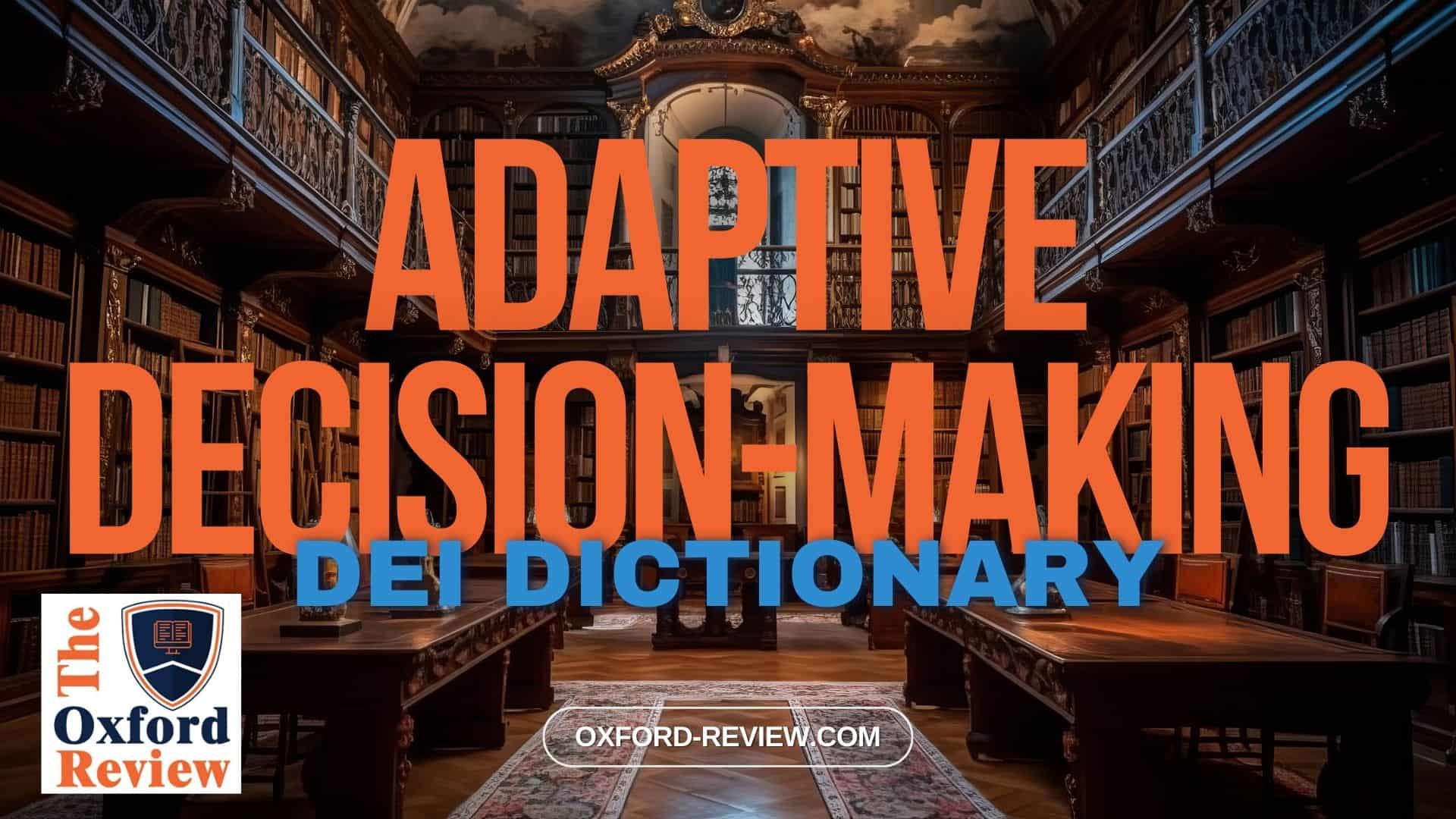Adaptive Decision-Making – Definition and Explanation

Maximising Success Through Adaptive Decision-Making in DEI Efforts
In the context of Diversity, Equity, and Inclusion (DEI), adaptive decision-making stands as a fundamental pillar for progress and effectiveness. This comprehensive guide delves into the depths of adaptive decision-making, elucidating its definition, significance, and practical applications in fostering inclusive environments.
Definition:
Adaptive decision-making refers to the dynamic process of continuously evaluating and adjusting strategies, actions, and responses based on evolving circumstances, feedback, and new information. In the context of DEI, it involves the capacity to flexibly navigate complex, diverse environments while remaining aligned with the principles of equity and inclusion.
Significance of Adaptive Decision-Making in DEI Initiatives:
In the dynamic landscape of DEI, static approaches often fall short in addressing the multifaceted challenges and nuances inherent in fostering inclusive cultures. Adaptive decision-making, however, offers a framework that acknowledges the fluidity of diversity-related issues and enables organisations to respond effectively. By embracing adaptive decision-making, organisations can:
- Stay Agile: In a rapidly changing world, adaptability is key. DEI initiatives must evolve alongside societal shifts, and adaptive decision-making allows organisations to pivot strategies as needed to address emerging challenges and opportunities.
- Empower Inclusivity: Different communities have unique needs and experiences. Adaptive decision-making empowers organisations to tailor their approaches, ensuring that initiatives are inclusive and resonate with diverse stakeholders.
- Foster Innovation: By encouraging experimentation and learning from failures, adaptive decision-making cultivates an environment where innovative solutions to DEI challenges can emerge. It promotes a culture of continuous improvement and creativity.
- Enhance Accountability: Regular evaluation and adjustment are integral to accountability in DEI efforts. Adaptive decision-making emphasises transparency and responsiveness, holding organisations accountable for their actions and outcomes.
Example of Adaptive Decision-Making in DEI:
Consider a company launching a mentorship programme aimed at fostering diversity in leadership roles. Initially, the programme is structured with fixed mentor-mentee pairings based solely on seniority. However, feedback reveals that participants desire more flexibility to choose mentors with shared identities or experiences.
In response, the organisation embraces adaptive decision-making by revising the programme structure to allow for self-selection of mentors based on shared characteristics or interests. This adjustment not only enhances the inclusivity of the programme but also demonstrates the organisation’s commitment to listening to and valuing diverse perspectives.
Conclusion:
In conclusion, adaptive decision-making is not merely a strategy but a mindset that underpins effective DEI initiatives. By remaining agile, responsive, and open to change, organisations can navigate the complexities of diversity and inclusion with resilience and efficacy.
References:
Phillips, S. D. (1997). Toward an expanded definition of adaptive decision making. The Career Development Quarterly, 45(3), 275-287. https://onlinelibrary.wiley.com/doi/abs/10.1002/j.2161-0045.1997.tb00471.x
Glöckner, A., Hilbig, B. E., & Jekel, M. (2014). What is adaptive about adaptive decision making? A parallel constraint satisfaction account. Cognition, 133(3), 641-666. https://www.sciencedirect.com/science/article/abs/pii/S0010027714001747
Lal, P., Lim-Applegate, H., & Scoccimarro, M. (2002). The adaptive decision-making process as a tool for integrated natural resource management: focus, attitudes, and approach. Conservation Ecology, 5(2). https://www.jstor.org/stable/26271810
Sofo, F., Colapinto, C., Sofo, M., & Ammirato, S. (2013). Adaptive decision making and intellectual styles (Vol. 13). Springer Science & Business Media. https://link.springer.com/book/10.1007/978-1-4614-6708-3
Be impressively well informed

Get the very latest research intelligence briefings, video research briefings, infographics and more sent direct to you as they are published
Be the most impressively well-informed and up-to-date person around...
